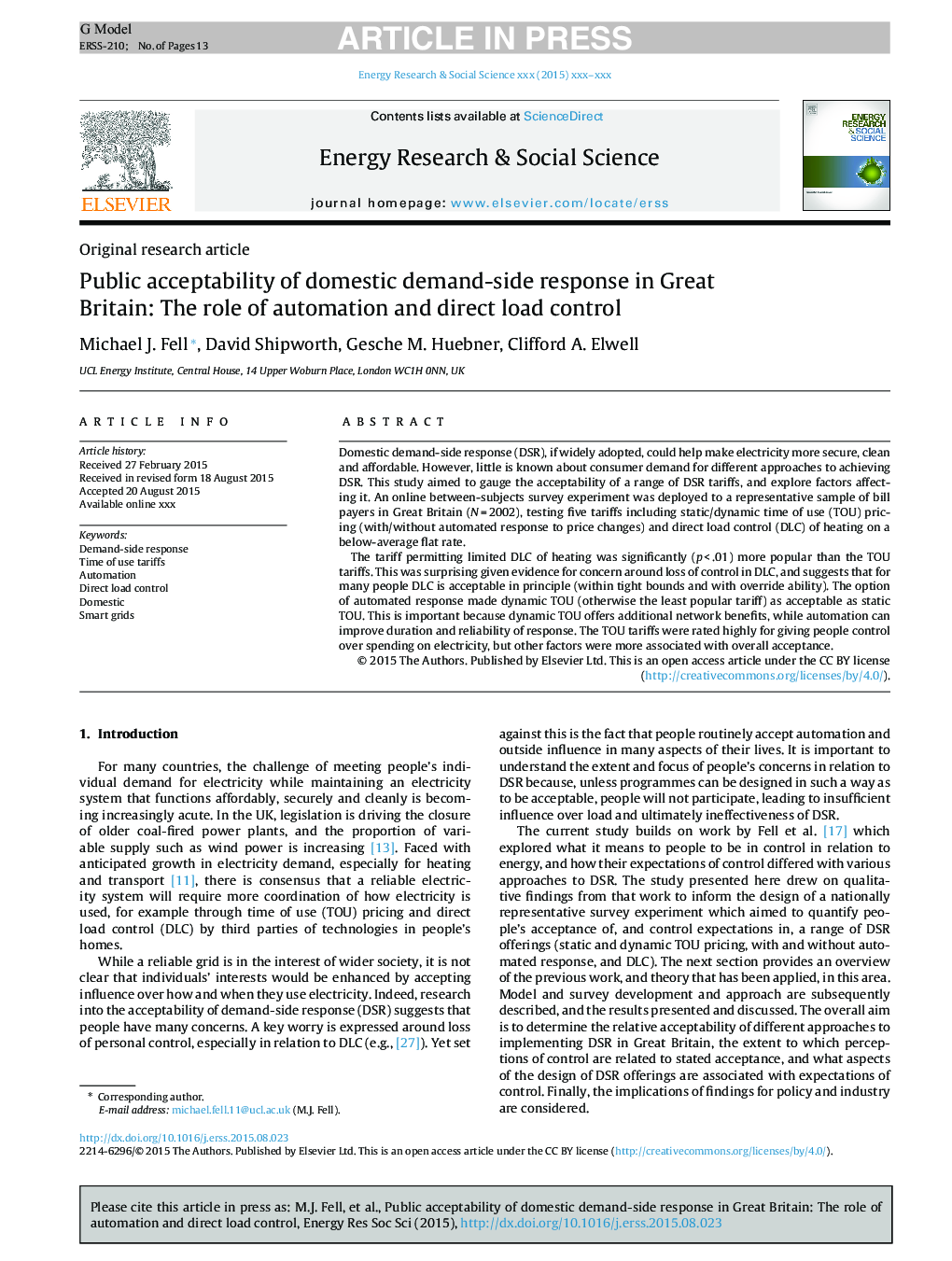| Article ID | Journal | Published Year | Pages | File Type |
|---|---|---|---|---|
| 6558649 | Energy Research & Social Science | 2015 | 13 Pages |
Abstract
The tariff permitting limited DLC of heating was significantly (p < .01) more popular than the TOU tariffs. This was surprising given evidence for concern around loss of control in DLC, and suggests that for many people DLC is acceptable in principle (within tight bounds and with override ability). The option of automated response made dynamic TOU (otherwise the least popular tariff) as acceptable as static TOU. This is important because dynamic TOU offers additional network benefits, while automation can improve duration and reliability of response. The TOU tariffs were rated highly for giving people control over spending on electricity, but other factors were more associated with overall acceptance.
Related Topics
Physical Sciences and Engineering
Energy
Energy (General)
Authors
Michael J. Fell, David Shipworth, Gesche M. Huebner, Clifford A. Elwell,
